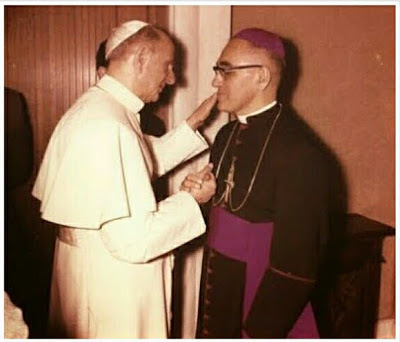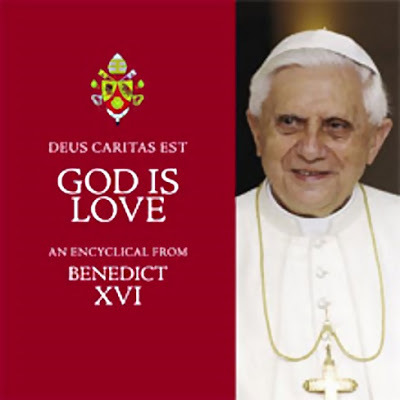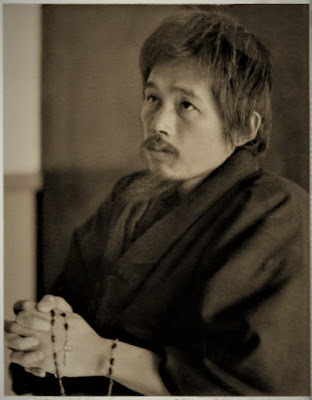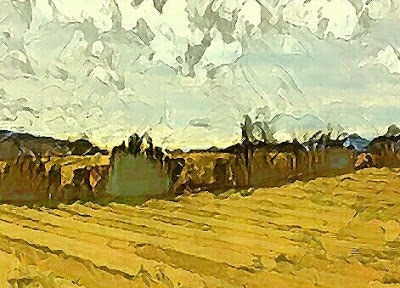John Janaro's Blog, page 192
March 13, 2018
Jesus REALLY IS in Charge of Our Lives
I want to present for the blog readers my meditation for the day that appeared in Monday's selection from this month's MAGNIFICAT (click the link to learn more about this beautiful magazine).
It seemed to hit home for a lot of readers, especially those who—like me—have "seen many winters" (or quite a few, at least
It seemed to hit home for a lot of readers, especially those who—like me—have "seen many winters" (or quite a few, at least
Published on March 13, 2018 20:30
March 12, 2018
Happy Birthday Christina Grimmie, "With Love!"

Hey guys....
I know I often come up with the "deep thoughts" for these occasions. But I don't have any words right now.
It has been two years since our magnificent friend celebrated her last birthday on this earth.
As I remember her, I find again that same combination of tremendous sorrow, gratitude, so much laughter and fun, inspiration, tears, goofiness, and ... astonishment. But I don't have words to describe all that tonight.
Tonight, I'm just a Dad.
I have a son who will be 21 years old in a couple of months. I have four daughters, aged 19, 17, 15, and 11 years old. They're good kids.
When I see the world through their eyes—through my love for them—and consider their hopes, their future, the dangers they will face, and the choices they will have to make, I can only be grateful for the life of Christina Grimmie.
There is much darkness in this world, kids. But love is always brighter than the darkness, stronger than the hatred. Don't be afraid to go out and live great, beautiful lives!
Happy Birthday Christina Grimmie. Thank you for showing the way.
Published on March 12, 2018 20:00
March 11, 2018
Prompt Devotion and Eager Faith

On the "Sunday of Rejoicing" in the midst of Lent, we are prompted to "hasten toward" the celebration of the Pascal Mystery that is not far off.
And as always the prayer of the Church reminds us that it is the grace of God that gives us everything, even the very capacity to respond to Him in faith and love. God "grants" the "prompt devotion and eager faith" by which we hasten to approach to Him. God "illuminates our hearts" to ponder and love Him.
All this we ask through Jesus Christ our Lord, God's definitive gift to us.
Collect:
"O God, who through your Word
reconcile the human race to yourself in a wonderful way,
grant, we pray,
that with prompt devotion and eager faith
the Christian people may hasten
toward the solemn celebrations to come.
Through our Lord Jesus Christ, your Son,
who lives and reigns with you in the unity of the Holy Spirit,
one God, for ever and ever."
Post-Communion:
"O God, who enlighten everyone
who comes into this world,
illuminate our hearts, we pray
with the splendor of your grace,
that we may always ponder
what is worthy and pleasing to your majesty
and love you in all sincerity.
Through Christ our Lord."
Published on March 11, 2018 20:54
March 8, 2018
Two New Miracles of Human Dignity and Solidarity
 Blessed Pope Paul VI speaks with Blessed Archbishop Oscar RomeroI have waited many years, hoping for the events that are now being prepared and that will probably both take place in 2018 (or early 2019). Two great bishops, two great witnesses to the faith of my youth, will be canonized as saints in the Universal Church.
Blessed Pope Paul VI speaks with Blessed Archbishop Oscar RomeroI have waited many years, hoping for the events that are now being prepared and that will probably both take place in 2018 (or early 2019). Two great bishops, two great witnesses to the faith of my youth, will be canonized as saints in the Universal Church.One of them towered over my childhood years; he was the bishop who presided over the tumultuous period of my growing up. He saw to its completion the initiative of reform and renewal that was the Second Vatican Council—which was above all an expansion of the heart of the Church to embrace the whole world with a "new evangelization."
During his own life, this great ecclesial aspiration sometimes seemed obscured or even defeated by so much confusion and even betrayal by others who should have helped lead the way. Nevertheless the seed fell upon good ground, and even now it grows in many places and in many (sometimes still hidden) ways.
First, however, it needed to sink deeply into the earth of this dramatic period of human history, and it began to grow only through the tremendous, inexpressible suffering of the man whom God had called tend it: Paul, Bishop of Rome, Servant of the Servants of God.
Giovanni Battista Montini, Pope Paul VI from 1963-1978: His suffering was palpable to those who loved the Church and were faithful to the Church. I was raised by people who felt that suffering and shared it with him, and through their solidarity with him my own faith was born.
The required post-beatification miracle has been approved for Blessed Paul VI, clearing the way for his canonization most likely at the end of the Synod of Bishops in October.
The other great bishop who will soon be named a saint was a true brother and faithful disciple of Paul VI, who carried out his ministry on my own continent, and consecrated its soil with his martyr's blood.
Under almost impossible conditions of political pressure and complexity, this bishop preached the gospel fully and in all its implications. He was not afraid to cry out for justice, to draw close to the poor, to challenge his people to heroic fidelity to their Christian vocation. At the same time, while insisting on the concrete implications of the gospel, he did not allow the Church to become a tool of any political agenda.
In the United States of America, some of us did not see his witness as clearly as we should have. But now everyone can be assured that his pastoral ministry was vital, lucid, and radically Catholic. The martyred Salvadorian Archbishop Oscar Romero was not a bishop who cowered before the oppressive regime that killed him.
Neither was he an ideological revolutionary. He was not "the bishop of the left." He was the bishop of everyone.
He was a bishop of the Church.
The necessary miracle has been approved for Blessed Oscar Romero, Archbishop of San Salvador; Oscar Romero, Bishop and Martyr, a shining light in the Central American nation of El Salvador where there is still so much poverty and suffering, but also much great faith.
I look forward to the liturgical celebrations of these two heroes of the faith. Their suffering and their blood gives me joy in the present and hope for the future.
A couple of texts:
Concern for justice, the common good, and human dignity is a matter that concerns the whole world: "It is not just a question of eliminating hunger and reducing poverty. It is not just a question of fighting wretched conditions, though this is an urgent and necessary task. It involves building a human community where men can live truly human lives, free from discrimination on account of race, religion or nationality, free from servitude to other men or to natural forces which they cannot yet control satisfactorily. It involves building a human community where liberty is not an idle word, where the needy Lazarus can sit down with the rich man at the same banquet table" (Pope Paul VI, Encyclical Populorum Progressio, 47).
-----------------------------------------------------------------------------------------------------------
"The Church is a lamp that has to give light, and therefore it must involve itself in tangible reality and thus be able to enlighten pilgrims who walk on this earth. This concern of the Church does not mean that it leaves its own sphere but that it perseveres in its difficult duty of shedding light on concrete affairs."
The Christian people in the world are called to give attention to the common good of society, to politics, and even to taking up political action. Nevertheless, "if both faith and political vocation have grown in a Christian, concerns of faith cannot be simply identified with a determined political concern.... One cannot insist that the Church or its ecclesial symbols become instruments of political activity. To be a good political activist one need not be a Christian, but Christians involved in political activity have an obligation to profess their faith in Christ and to use methods that are congruent with their faith." (Archbishop Oscar Romero, Homily, August 6, 1978).
Published on March 08, 2018 20:55
March 7, 2018
God Has "Loved Us First"
 One text that I find continually enriching is Pope Benedict XVI's beautiful and profound first encyclical Deus Caritas Est. For me, the year 2006 was not that long ago. In historical terms, it's hardly a blink.
One text that I find continually enriching is Pope Benedict XVI's beautiful and profound first encyclical Deus Caritas Est. For me, the year 2006 was not that long ago. In historical terms, it's hardly a blink.This is still very much a "contemporary" document, as is the whole great contribution of Pope Benedict to the vision of the Church.
The excerpts cited here are pertinent to the themes of forgiveness and fraternal charity that I find myself meditating on in a particular way this Lenten season. It should go without saying that they also show the clear continuity between Benedict and Pope Francis, a continuity which is simply the Gospel witness that is so essential for us to receive and to share with others. It is the Gospel of the God who loves us, and whose love gives us the power to live as his children, to love him, to love one another, and to love every human person created in his image.
"The Lord...encounters us ever anew, in the men and women who reflect his presence, in his word, in the sacraments, and especially in the Eucharist. In the Church's Liturgy, in her prayer, in the living community of believers, we experience the love of God, we perceive his presence and we thus learn to recognize that presence in our daily lives.
"He has loved us first and he continues to do so; we too, then, can respond with love. God does not demand of us a feeling which we ourselves are incapable of producing. He loves us, he makes us see and experience his love, and since he has 'loved us first,' love can also blossom as a response within us."
As this experience of God's love shapes our hearts, "love of neighbor is...shown to be possible in the way proclaimed by the Bible, by Jesus. It consists in the very fact that, in God and with God, I love even the person whom I do not like or even know.
"This can only take place on the basis of an intimate encounter with God, an encounter which has become a communion of will, even affecting my feelings. Then I learn to look on this other person not simply with my eyes and my feelings, but from the perspective of Jesus Christ. His friend is my friend. Going beyond exterior appearances, I perceive in others an interior desire for a sign of love, of concern."
Thus "seeing with the eyes of Christ, I can give to others much more than their outward necessities; I can give them the look of love which they crave. Here we see the necessary interplay between love of God and love of neighbor which 1 John speaks of with such insistence. If I have no contact whatsoever with God in my life, then I cannot see in the other anything more than the other, and I am incapable of seeing in him the image of God.
"But if in my life I fail completely to heed others, solely out of a desire to be 'devout' and to perform my 'religious duties,' then my relationship with God will also grow arid. It becomes merely 'proper,' but loveless. Only my readiness to encounter my neighbor and to show him love makes me sensitive to God as well. Only if I serve my neighbor can my eyes be opened to what God does for me and how much he loves me."
From Benedict XVI, Deus Caritas Est 17, 18
Published on March 07, 2018 20:49
March 6, 2018
Celebrating Eileen's Birthday
 Yesterday was Eileen's birthday.
Yesterday was Eileen's birthday.I have known this remarkable lady for more than half my lifetime. I am so grateful that, by the grace of God, she is my life's companion. I cannot possibly pretend that I deserve to have such an outstanding person at my side, day by day.
Last year was a "significant numerical birthday" (
Published on March 06, 2018 20:19
March 4, 2018
The "Foolishness of God"
Published on March 04, 2018 20:41
March 3, 2018
March Comes Roaring In
March has come in like a roaring lion, blustery and chilly.
What happened to the tropical weather we were enjoying a week and a half ago? Oh well, Spring will be here soon and I'm looking forward to it.

What happened to the tropical weather we were enjoying a week and a half ago? Oh well, Spring will be here soon and I'm looking forward to it.

Published on March 03, 2018 19:07
March 2, 2018
The Bells of Takashi Nagai
 Dr. Takashi Nagai (1908-1951) was a Japanese medical doctor, a scientist and pioneering researcher who specialized in radiology, a highly respected professor, a beloved husband and father, and a convert from atheism to Jesus Christ and his Church. My article about his conversion will appear in Magnificat this Fall.
Dr. Takashi Nagai (1908-1951) was a Japanese medical doctor, a scientist and pioneering researcher who specialized in radiology, a highly respected professor, a beloved husband and father, and a convert from atheism to Jesus Christ and his Church. My article about his conversion will appear in Magnificat this Fall.But there is another story, the story of a more profound conversion, a radical change in Dr. Nagai's whole life that set him on the road to a greater faith, but also involved his passing through an almost unimaginable horror that began at 11:02 AM on August 8, 1945.
I can only say that the story of this great man, his wife, his family, his colleagues, and his community is one of the most intense and heart-wrenching and terrifying and beautiful stories I have ever come across in the twentieth century Church.
It is a story he lived long enough to tell, in a book called The Bells of Nagasaki.
The Catholics of the Urakami district of Nagasaki, the disciples of Francis Xavier, the survivors of three centuries of persecution, were not specifically the intended target of the second atomic bomb. But because of various circumstances including weather conditions and wind, the very heart of Christianity in Japan--home to some 30,000 Catholics and their cathedral--became, literally, Ground Zero.
Many thousands of people were immediately reduced to ashes, including an estimated 8,000 Christians at the epicenter who were going about their morning routines, living, working, and praying. The cathedral was packed with worshippers praying for peace when the bomb exploded in the air above it. People in the vicinity of Ground Zero died where they were standing, sitting, or kneeling, in a flash.
The Nagai children were outside the city with their grandmother on that day. But their mother Midori Nagai was in the kitchen of their home in Urakami near the cathedral. The old home was built over a cowshed where her ancestors, the secret Christians, had gathered to pray and pass on their faith for seven generations without any priests, with only a basic catechism and the sacrament of baptism.
Days later her husband found remnants of her skeleton in the midst of the ruins, and some melted metal in the remains of the bones of her hand where he could barely make out the outline of a crucifix. Like so many of the Christians at Ground Zero, Takashi Nagai's wife had a deep devotion to Mary. When the awful fire fell, she had been praying the rosary.
Dr. Nagai was at his hospital on that morning. He was pinned under the wreckage of his laboratory, seriously
injured but alive. Eventually the handful of doctors, nurses, and students who survived were able to reach him, stop the worst of his bleeding, and bring him to his feet. They formed a team that for several days worked heroically to treat whomever could be rescued from the flames and the scorched ground where there had once been a city.
 As doctors, they did what they could to help the wounded, without medicines or supplies. As scientists, they discussed among themselves with horror and wonder the phenomenon that had occurred. They didn't know of the attack on Hiroshima, but they were able to see that this was a wholly new kind of bombing. Dr. Nagai and his colleagues were aware of the trajectory of atomic research, and had heard rumors that efforts were being made to use that research to make a horrible weapon, a nuclear bomb.
As doctors, they did what they could to help the wounded, without medicines or supplies. As scientists, they discussed among themselves with horror and wonder the phenomenon that had occurred. They didn't know of the attack on Hiroshima, but they were able to see that this was a wholly new kind of bombing. Dr. Nagai and his colleagues were aware of the trajectory of atomic research, and had heard rumors that efforts were being made to use that research to make a horrible weapon, a nuclear bomb.Their experience convinced them that these efforts had succeeded, and that they were living through a nuclear holocaust. And it wasn't over yet.
In the hours, then days, then weeks that followed, many people who had survived the blast developed strange and often fatal illnesses from radiation poisoning. Still others would succumb to their injuries. After a month of exhausting labor caring for the wounded and struggling to stay on his own feet, Dr. Nagai himself collapsed and was on the verge of death. His colleagues gave up hope of saving him as he moved in and out of a coma.
He recalled that he was prepared to die, but felt the desire and the need to live for the sake of his children (who had already lost their mother). Then he had a very unusual experience, which he reported to be something like a voice prompting him in a very specific way. In order to understand the significance of this prompting, we should note that Saint Maximilian Kolbe had lived in Nagasaki from 1930-1936 and was well known and much loved by the Catholic community. He had even been one of Dr. Nagai's patients. Fr. Kolbe had, of course, returned to Poland where the final act of his own drama awaited, and all news of him was blocked by the war.
But as Dr. Nagai lay dying, a voice seemed to urge him to "pray to Fr. Kolbe" for healing. No one in Japan knew that Fr. Kolbe was even dead, much less that he had died a martyr, but Takashi Nagai prayed for the intercession of the beloved friar. Soon after, he emerged from the coma, and the injury causing immediate danger to his life was inexplicably healed.
His fellow doctors said it was a miracle.
Unfortunately, his overall health was broken by radiation-induced leukemia, which eventually rendered him an invalid. From his bed, he turned to writing. In the light of his deepening faith, he wrote about the events he had experienced their implications for the future. He wanted to record all he could for the sake of his native Japan and its reconstruction, for future scientific research, and as an advocate for peace in the world. He lived until 1951 and wrote 20 books, including The Bells of Nagasaki.
He is held in great esteem in Japan by Christians and non-Christians, and his story deserves to be more widely known. As I continue my literary (and film/video) "tour" of East Asia, you will hear more about him from me. His story is deeply Catholic, sorrowful, mysterious, and marked by the distinctively Japanese cultural character that we need to understand better.
But you don't have to wait for me. Fr Paul Glynn, an Australian priest who lived many years in Japan, wrote a very accessible biography that was recently reprinted by Ignatius Press, which you can get HERE. It is not an easy story, but it is one that needs to be heard, and that is very important for our troubled world today.
Published on March 02, 2018 20:59
March 1, 2018
The Thirst of a Parched Land
 I have been praying recently with this penitential text (posted in large print below) from Psalm 143. There is much here that strikes me and draws me to meditation.
I have been praying recently with this penitential text (posted in large print below) from Psalm 143. There is much here that strikes me and draws me to meditation.Conversion and repentance spring from the memory of the power and goodness of the Lord. However great our sin and misery, when we turn to him we will discover that he has been reaching out to us, sustaining us, calling us all the while. He never forgets us.
The Lord is faithful, righteous (holy), the One whose works are good, who is worthy of trust. The Lord saves; he is full of steadfast love; he is the teacher, the One whose "spirit" leads to good paths, the preserver who rescues me from distress, and who is my refuge. He is also the One who will "enter into judgment" with me and with all who have ever lived.
He is "my God."
I am not righteous or holy as the Lord would have me be, so that I might stand in his presence. I have kept my distance from him, trying to live by my own self-sufficiency.
I forgot the Lord, and tried to exalt myself by my own strength, by my own ideas and the force of my own will. But then I learned that reality doesn't work that way.
Wandering by myself without the Lord, I became the prey of my enemies. I had no way of escaping the brutal, relentless logic of power and domination. It crushed my life, threw me into darkness, numbed my heart. My spirit was failing within me.
I was left in a desert inside myself, a parched land.
It was then that I remembered the deeds of the Lord, the works of his hands. I remembered his love, the love that creates and saves and renews and always prevails. I too am his handiwork. He is everything that my heart longs for.
Lord, my soul thirsts for you.
And now I cry out to the Lord, I seek his face, I wait upon his word, I lift up my soul to him, I trust in him, I beg for him to save me.
I am like the child who runs away for a careless adventure and becomes lost, then suddenly remembers the warmth of home and the generous love of his parents. The child cries out for help, to find the way home in the dark. He remembers again the tenderness and attentive concern of his parents and he takes heart--he knows that they are not far off, and that they are already searching for him.
"Hear my prayer, O Lord;
give ear to my supplications in your faithfulness;
answer me in your righteousness.
Do not enter into judgment with your servant,
for no one living is righteous before you.
"For the enemy has pursued me,
crushing my life to the ground,
making me sit in darkness like those long dead.
Therefore my spirit fails;
my heart is numb within me.
"I remember the days of old,
I think about all your deeds,
I meditate on the works of your hands.
I stretch out my hands to you;
like a parched land my soul thirsts for you.
"Answer me quickly, O Lord;
for my spirit fails within me.
Do not hide your face,
or I shall be like those who go down to the Pit.
Let me hear of your steadfast love in the morning,
for in you I put my trust.
Teach me the way I should go,
for to you I lift up my soul.
"Save me, O Lord, from my enemies;
I have fled to you for refuge.
Teach me to do your will,
for you are my God.
Let your good spirit lead me
on a level path.
"For your name’s sake, O Lord, preserve my life.
In your righteousness save my soul from distress."
~Psalm 143:1-11
Published on March 01, 2018 15:56




